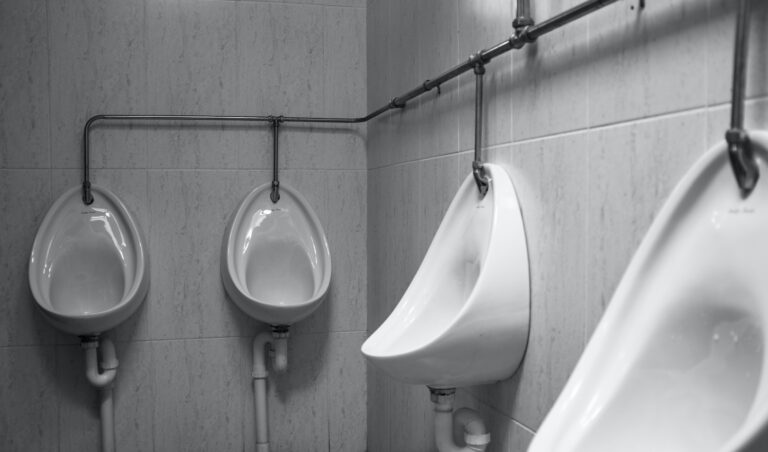We’ve all heard the saying “a pee break after sex keeps UTIs away.” But does it really work?
During orgasm, your body releases an antidiuretic hormone that makes it hard to pee. That’s because vasopressin reduces the amount of water that leaves the body, raises your blood pressure, and restricts your blood vessels.
1. Anxiety
When you feel like you have to pee but aren’t able to, it’s not uncommon for your first instinct to be that you have an infection. But a burning sensation or urinary retention after orgasm isn’t always an indication of an infection—it may also be caused by irritation from a lubricant you used, or by sex from behind (the movements can move bacteria up the tube that carries urine from your bladder to your penis).
Anxiety can be another factor. Women who struggle with PTSD, anxiety, or feelings of shame and fear around sexual activity might find themselves anxious about having to pee after orgasm. That can lead to panic attacks and avoidance of public restrooms, which can have psychological and social consequences.
Luckily, there are treatments for anxiety. For example, a type of cognitive behavior therapy called graduated exposure can help lower your brain’s anxiety response by slowly reintroducing you to the fearful situation. It’s also recommended to drink a lot of water and get a full night’s sleep. Bladder training—practicing peeing in different positions—can also help improve your bladder function. If symptoms persist, consult a doctor. They can help you figure out the cause of your urinary retention and recommend appropriate treatment. They might prescribe a lubricant to rehydrate your skin, or give you antibiotics for an infection.
2. Vasopressin
A hormone called vasopressin (also known as antidiuretic hormone or ADH) is released during orgasm, and it can make it harder to pee. This is because the hormone reduces urination by inhibiting the flow of water and constricting blood vessels. Vasopressin can also interfere with the release of oxytocin, a chemical that stimulates urine production.
The human bladder, urethra, and pelvic floor muscles are all interconnected. As a woman approaches orgasm, the clitoris, vagina, and cervix become engorged with blood, which increases sexual sensations. This engorgement can also prevent urine from exiting the body through the urethra, resulting in urinary retention.
Women are especially prone to urinary tract infections after sex, which can be very painful and may have a negative effect on their relationships. In many cases, the first sign of a UTI is a need to pee very frequently. Fortunately, there are some things that can help people avoid UTIs after sex, including drinking plenty of fluids and using barrier contraceptives during sexual activity.
However, it is important to note that peeing after sex will not prevent STIs, which are transmitted when bacteria from the genitals enter the bladder and urethra. Using some form of birth control during sexual activity is the only way to prevent STIs, which can cause long-term health problems including infertility and cancer.
3. Urinary Tract Infections
Urinary tract infections are more common in women than men, and sex can be one of the triggers for a UTI. Women’s urethra is closer to their anus than the male urethra, making it easier for bacteria from the prostate (for people with a penis) or vagina to make their way into the bladder. Other risk factors include a new sexual partner, frequent orgasms, a condition like diabetes or pelvic organ prolapse, and changing hormone levels during and after menopause.
If you get a urinary tract infection that makes it hard to pee, you may need antibiotics. Painful peeing after sex can also be a sign that a bladder infection is spreading to your kidneys, which can lead to a much more serious problem.
Taking antibiotics will help to treat the urinary tract infection, but you should also take care not to cause a recurrence by having sex again until your symptoms clear up. For instance, you could try wiping from front to back after orgasm instead of side to side, and you should wear cotton underwear. You can also use a lubricant to make orgasms more comfortable and use a sitz bath to soak up any urine that’s left behind after you pee.
4. Urinary Incontinence
Many people who struggle to pee after sex have urinary incontinence, a condition where you experience leakage of urine. It can be triggered by many things, including stress and anxiety, dehydration, medications (such as alpha-blockers used to treat high blood pressure) and certain chronic conditions like interstitial cystitis or overactive bladder syndrome. It can also be a symptom of prostate issues such as an enlarged prostate or prostate cancer.
Urinary incontinence can be painful and embarrassing. If it’s a problem for you, talk to your doctor about what strategies might help you cope. Urinary incontinence isn’t curable, but there are ways to reduce the symptoms. This may include taking medications to control your blood pressure, avoiding foods and beverages that can irritate the bladder, and doing pelvic floor exercises, like Kegels, to strengthen the muscles that help you with urinary control.
It’s important to remember that while there’s no scientifically backed timeline for when you should pee after sex, it can be helpful to make the effort when you feel the urge. The benefits of doing so are clear: it helps prevent UTIs, keeps the urethra (the tube where pee comes out) clean and can prevent anal or vaginal infections in women. In men, urinating after sex can also help reduce the risk of STIs from unprotected or anal sex because it flushes bacteria from the anus to the penis.
See Also:


